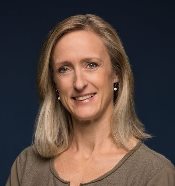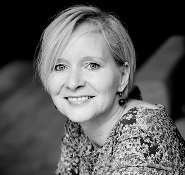ADVISORY ARTICLE
By Carlijn Nelis, Björn Prevaas and Manon Ruijters
The Netherlands
Abstract
Ownership is a concept that fascinates us but has always remained somewhat slippery and elusive. The authors therefore went in search of what research has to say about it, particularly about psychological ownership. From there they linked empirical research. Based on this, a model was developed that provides guidance for issues in which (developing) a sense of ownership plays a role. This model consists of three layers: (1) determining the core, (2) creating the conditions and (3) setting in motion. On these layers nine elements have been distinguished that help to shape ownership. In this article the authors share their insights, with suggestions how to apply these in practice, so that ownership in organizations can be further developed and the underlying dynamics can be understood.
Introduction
Ownership is not only a sensitive subject at critical moments in our private lives, but it also plays an important role in organizations. You hear more critical comments about it than appreciative ones: ‘He just doesn’t take ownership!’, ‘Who takes ownership for this?’, or: ‘Yeah right, this isn’t mine?’ Of course, there are also practices where this is hardly an issue; there you see people who know what they want, and where and how they want to add value. They stand firm in their work and make sure it runs smoothly. How can we shape ownership in organizations, in a way that contributes to good work: work that is good, does good and feels good?
Ownership is a concept that fascinates us but it has always remained somewhat slippery and elusive. So, we went looking for what research tells us about it, particularly about psychological ownership (Van Dyne & Pierce, 2004). We linked empirical research to that (Nelis, 2017). Based on that, we developed a model that provides guidance for issues involving (developing) people’s ownership. In this article we share our insights and give several suggestions for application of the model in practice, in such a way that we hope ownership in organizations may grow and the underlying dynamics can be understood.
Experiencing ownership
In the past, organizations talked about responsibility or commitment, but now you mostly hear about ownership. The term is also increasingly used in the names of roles, such as project owner, benefit owner or (when working agile) product owner. But what does that term actually mean and what do we mean when we say that (more) ownership must be taken? What influences someone’s (sense of) ownership of something? And how do you shape it together?
Gallup research shows time and again that only about 15 percent of employees worldwide are actively engaged. The figures vary somewhat over time, but not by very much.
If you want to indicate what stimulates someone to take ownership, it helps to examine how this works for yourself. What do you feel ownership of when it comes to your work? Are there things that pop into your mind that make you think: “Yes, that’s what makes me tick”, “That’s really my thing”, or “This is what I stand for”? What makes you take ownership of something? And do you remember things for which you were supposed to take ownership, for example in a project, but where you felt resistance to do so? And what about the people you work with, to what extent do they show ownership?
More…
To read entire article, click here
Editor’s note: This article was previously published in the Tijdschrift voor Management en Organisatie in The Netherlands in March 2022. Nelis, C., Prevaas, B., & Ruijters, M. (2022). Eigenaarschap in (tijdelijke) organisaties ontrafeld. Tijdschrift voor Management en Organisatie, 76(1), 52-67. It is published here with authors’ permissions.
How to cite this article: Nelis, C., Prevaas, B., Ruijters, M. (2022). Ownership in (temporary) organizations unraveled, PM World Journal, Vol. XI, Issue VII, July. Available online at https://pmworldlibrary.net/wp-content/uploads/2022/07/pmwj119-Jul2022-Nelis-Prevaas-Ruijters-ownership-in-temporary-orgs-unraveled.pdf
About the Authors

Carlijn Nelis
The Netherlands
![]()
Carlijn Nelis is a Dutch consultant in the field of organizational change and organizational development and is co-owner of management consultancy firm C3 consultants and managers. She works as a consultant, researcher, project leader and program manager on change processes within healthcare, welfare, and other social sectors, often in complex organizations and in collaborations of multiple organizations. She supports directors and managers in their issues in the field of organizational change or organizational development, such as organizational design, cooperation, cultural change, innovation, and the realization of new working methods, with a special interest in learning and development.
She has experience in guiding and collaborating with professionals on changes in their work, with focus on the tension between professional interest and organizational interest that these issues can entail. Carlijn is a partner for the board, management, professionals and can switch between these levels and establish a connection. In addition to working in different assignments, she is part of the professional identity research group and gives workshops and masterclasses within her field of organizational change and development. Carlijn can be contacted at c.nelis@c3am.nl.

Manon Ruijters
The Netherlands
![]()
Manon Ruijters is a Dutch professor of Learning, Development and Behavioral Change at the Vrije Universiteit Amsterdam, lecturer at Aeres Hogeschool Wageningen and consultant and co-owner of Good Work Company. Her work is characterized by an interaction between theory and practice in the field of learning and development of individuals, teams, and organizations. She combines research, publishing, coaching, facilitating, and consulting assignments. Manon publishes in both scientific and popular journals (national and international) and wrote numerous books (mainly in Dutch) about learning, professional identity, team learning, organizational development, learning organizations and other topics.
In The Netherlands she’s recognized as a thought leader in this field. Her work is the basis for a lot of organizations on how they think of and work on learning and development, not only in the educational sector but also in health care, government, and many others. She’s a regular guest teacher at various business schools, gives lectures and masterclasses and was program director of the post-master Learning, Development and Change. Also, Manon is a member of the advisory board of several Dutch journals and a member of the scientific board of the Dutch association of consultants. Manon can be contacted at manonruijters@goodworkcompany.nl.

Björn Prevaas
The Netherlands
![]()
Björn Prevaas is a Dutch consultant in the field of project and program management and co-owner of Good Work Company. He guides and supports individuals, teams and organizations to realize their ambitions with the help of projects and programs. Björn does this by combining facilitation work in the practice of organizations (for example by project and program start-ups), giving training and lectures, coaching, consulting, and reviewing projects and programs. He also supports boards and management teams in developing their organizations in project and program management.
Björn undertakes all kinds of initiatives to further develop the discipline of program management, in particular through publishing and organizing events and conferences. Books he published (in Dutch) are for example Working on Programs (2014), Program Canvas (2016) and Leadership of the Program Manager (2018). In The Netherlands he’s recognized as a thought leader in the field of program management. Together with Manon Ruijters he works on the cutting edge of learning and performing, to try to intertwine both, for example: how to evolve projects and programs into more learning organizations? Or: how to use programs better to help organizations to grow and develop their capabilities more effectively? Björn can be contacted at bjornprevaas@goodworkcompany.nl.
About Good Work Company & C3
Good Work Company is a small Dutch consulting firm, founded and run by Björn Prevaas and Manon Ruijters. The company advises organizations in the field of learning, development, project and program management and the connections between these fields of expertise. The aim is to stimulate Good Work in organizations: work that is good (excellent), does good (ethical) and feels good (engaging), in line with the ideas of Howard Gardner, Mihaly Csikszentmihalyi and William Damon. For more, visit www.goodworkcompany.nl.
C3 Consultants and Managers is a small Dutch management consultancy firm within the healthcare and welfare sector with the ambition to improve healthcare and welfare together with its customers and clients. For more, visit www.c3am.nl.









